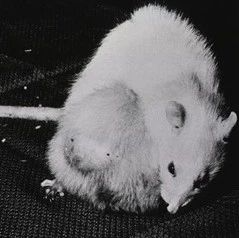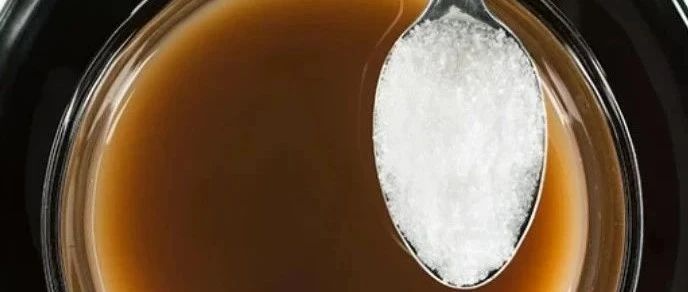
从羊水中获取的重编程干细胞
根据7月3号发表在《journal Molecular Therapy》上的研究成果:从羊水中获取的干细胞可以转化成另外一种更通用的类似于胚胎干细胞的状态。
来自伦敦帝国理工学院和儿童健康研究所的科学家们成功的在不引入额外基因的条件下将羊水细胞进行了重编程。这一发现将促使干细胞银行接受捐献羊水干细胞从事研究和治疗的可能性大大提高,为当前的只接受胚胎干细胞捐赠提供了一个替代方案。
在子宫中,羊水包围并滋养着胎儿。可通过羊膜穿刺术获取羊水用来测试母亲是否携带遗传性疾病。这种羊水中所含有的干细胞与可发育成不同类型的胚胎干细胞相比能力很有限。
研究人员从3月龄以内孕妇子宫中抽取羊水分离获得的干细胞,将其培养在一种凝胶状蛋白混合物上,并通过向培养基中添加一种叫做丙戊酸(valproic acid)的药物促使其编码至一个更初级的状态。大量的实验表明:这些重编码的细胞具有和胚胎干细胞类似的可发展成为任何人体细胞类型的能力。
研究结果表明:从羊水中分离得到的干细胞具备很广的治疗用途。捐献的细胞可以储存在“细胞银行”并用于医疗、疾病研究和药物筛选。根据最近的研究估计,从150名捐赠者获得的羊水干细胞可提供全部人口中38%的配型。
以往的研究表明,使用病毒载体引入额外的基因到成熟细胞中可使之成为多能干细胞。然而,重编码的效率非常低,另外破坏DNA会引起癌变的风险。如今这项新技术是第一个不引入外来遗传物质,而将人体细胞诱导为多能性。出羊水干细胞以外,尚未发现从其他来源的干细胞可诱导出于胚胎干细胞相似的性状。
伦敦帝国理工学院癌症与外科部的Pascale Guillot博士表示:“羊水干细胞是居于胚胎干细胞和成人干细胞之间的过渡状态,它们有发展成为不同类型的细胞的潜力。但是它们是不是多能干细胞?我们已经证明,通过添加化学试剂来影响其DNA在胚胎基因中的表达,使其转回多能干细胞状态。”
伦敦帝国理工学院儿童健康研究所的Paolo De Coppi博士解释到:“未经任何基因操作的遗传上纯洁性的优势使羊水干细胞更适合用于治疗。”
这项研究受资助于创世纪研究信托基金会(Genesis Research Trust),亨利.史密斯慈善医学研究。

 Valproic Acid Confers Functional Pluripotency to Human Amniotic Fluid Stem Cells in a Transgene-free Approach
Valproic Acid Confers Functional Pluripotency to Human Amniotic Fluid Stem Cells in a Transgene-free Approach
Dafni Moschidou, Sayandip Mukherjee, Michael P Blundell, Katharina Drews, Gemma N Jones, Hassan Abdulrazzak, Beata Nowakowska, Anju Phoolchund, Kenneth Lay, T Selvee Ramasamy, Mara Cananzi, Daniel Nettersheim, Mark Sullivan, Jennifer Frost, Gudrun Moore, Joris R Vermeesch, Nicholas M Fisk, Adrian J Thrasher, Anthony Atala, James Adjaye, Hubert Schorle, Paolo De Coppi and Pascale V Guillot
Induced pluripotent stem cells (iPSCs) with potential for therapeutic applications can be derived from somatic cells via ectopic expression of a set of limited and defined transcription factors. However, due to risks of random integration of the reprogramming transgenes into the host genome, the low efficiency of the process, and the potential risk of virally induced tumorigenicity, alternative methods have been developed to generate pluripotent cells using nonintegrating systems, albeit with limited success. Here, we show that c-KIT+ human first-trimester amniotic fluid stem cells (AFSCs) can be fully reprogrammed to pluripotency without ectopic factors, by culture on Matrigel in human embryonic stem cell (hESC) medium supplemented with the histone deacetylase inhibitor (HDACi) valproic acid (VPA). The cells share 82% transcriptome identity with hESCs and are capable of forming embryoid bodies (EBs) in vitro and teratomas in vivo. After long-term expansion, they maintain genetic stability, protein level expression of key pluripotency factors, high cell-division kinetics, telomerase activity, repression of X-inactivation, and capacity to differentiate into lineages of the three germ layers, such as definitive endoderm, hepatocytes, bone, fat, cartilage, neurons, and oligodendrocytes. We conclude that AFSC can be utilized for cell banking of patient-specific pluripotent cells for potential applications in allogeneic cellular replacement therapies, pharmaceutical screening, and disease modeling.






